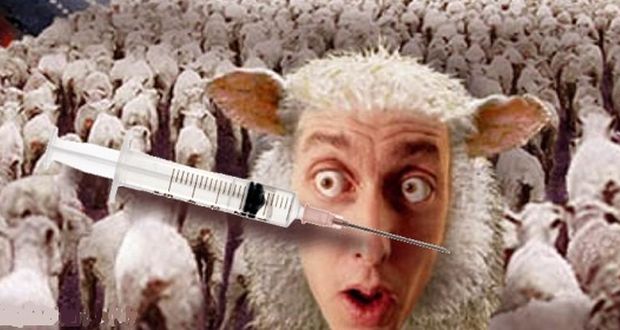Do People Prefer to think a Vaccine is 'a Cure' (rather than What It Actually Is)?
@mythociate (21428)
Oklahoma City, Oklahoma
February 8, 2021 9:52am CST
I'm sure people talk about it all over the news ... the main two places I've seen it are The Rachel Maddow Show & CBS Sunday Morning.
Maybe they all understand (like older Christians understand that 'going to Heaven when you die' is just something we tell ourselves so we don't feel like life-on-Earth is "a punishment") that the vaccine is not what fights against the virus, but their words say that's what they think it does!
And I ... I don't want to 'ruin it for you' if that's what you think it does; so tell me what you think vaccines do, and I'll tell you how much I agree or disagree.
1 person likes this
4 responses
@Happyflowerlady (31)
• Huntsville, Alabama
10 Feb 21
It appears that you are one of those people who think that anyone who disagrees with you is probably wrong, rather than someone who likes to hear different opinions to learn from them.
Nevertheless, I do partially agree with you, that the vaccine is not going to cure the problem, and prevent you from getting a virus, which is what many people do seem to think that it will do.
It exposes your body to a weakened form of the virus, and then your immune system can learn to identify it as an attacker.
However, one important thing , is how strong a person’s immune system is. Three people can be exposed to the same virus, one will get very sick, one will just get a little sick, and one might not even know that they have been exposed because their body fights off the infection before it can take over and make you really sick.
Therefore, people getting the vaccination will probably also have different levels of reactions to it.
2 people like this
@owlwings (43902)
• Cambridge, England
10 Feb 21
It's quite true that different people may experience different levels of reaction. I don't believe I noticed any reaction at all (not even an ache at the site of the injection), whereas my wife has definitely felt tired for a few days afterwards.
The point is that the vaccine is a controlled amount of the agent (in the case of the Covid-19 vaccine, it isn't even a 'weakened form of the virus': it's just some of the protein of the outer surface of the virus) and so the immune system only has to learn and deal with a limited amount. That means that any reaction is likely to be short-lived and much less severe than a reaction to the real virus would be.
What many people don't appreciate is that it's usually not the infection itself which makes us feel ill, it is the activity and energy being used by the immune system in fighting the infection which gives us a fever, causes redness and swelling round a wound and so on.
2 people like this
@Happyflowerlady (31)
• Huntsville, Alabama
10 Feb 21
@owlwings , I agree that it is the reactions of our body that make us feel sick and achey. Inflammation is one of the first reactions that our body has , and where there is inflammation, there is pain.
This is why it helps to keep our immune system working well, and also that it was able to get strong back when we were children.
Nowadays, people build up immunity by vaccinations, but before this century, people developed their immune system by catching, and overcoming , many childhood diseases.
Even having food that is slightly tainted is going to help the immune system learn to fight off bacterial infections, so they are not as likely to get sick from bad food after that.
2 people like this
@mythociate (21428)
• Oklahoma City, Oklahoma
10 Feb 21
That's one way of understanding it.
A vaccine is 'a weakened form of the virus itself.' Injecting it into your bloodstream, your immune-system learns how to find it and capture it & flush it out of your system.
2 people like this
@owlwings (43902)
• Cambridge, England
10 Feb 21
Well, it is true, in a sense, that " the vaccine is not what fights against the virus". What the vaccine does is to 'educate' your immune system by presenting it with inactive parts of the virus, or in the case of the Covid-19 vaccine, one of the proteins which make up the outer surface of the virus, so that the immune system can learn to recognise it and so attack it when it encounters it again (i.e. when the real virus tries to infect the body).
A vaccine is not a 'cure' because it can't protect you if you already have the disease. It protects you from a possible [u]future[/i] infection. The more people that have the necessary antibodies (either through surviving an infection or by being injected with the vaccine), the less likely it is that the virus will be able to reproduce and spread. In an ideal situation, that will mean that the disease will be entirely eliminated, as has happened with smallpox (in humans) and rinderpest (in cattle).
1 person likes this
@mosherii (1207)
•
11 Feb 21
I normally wonder how our forefathers operated without vaccines. The people who first lived in this world.









